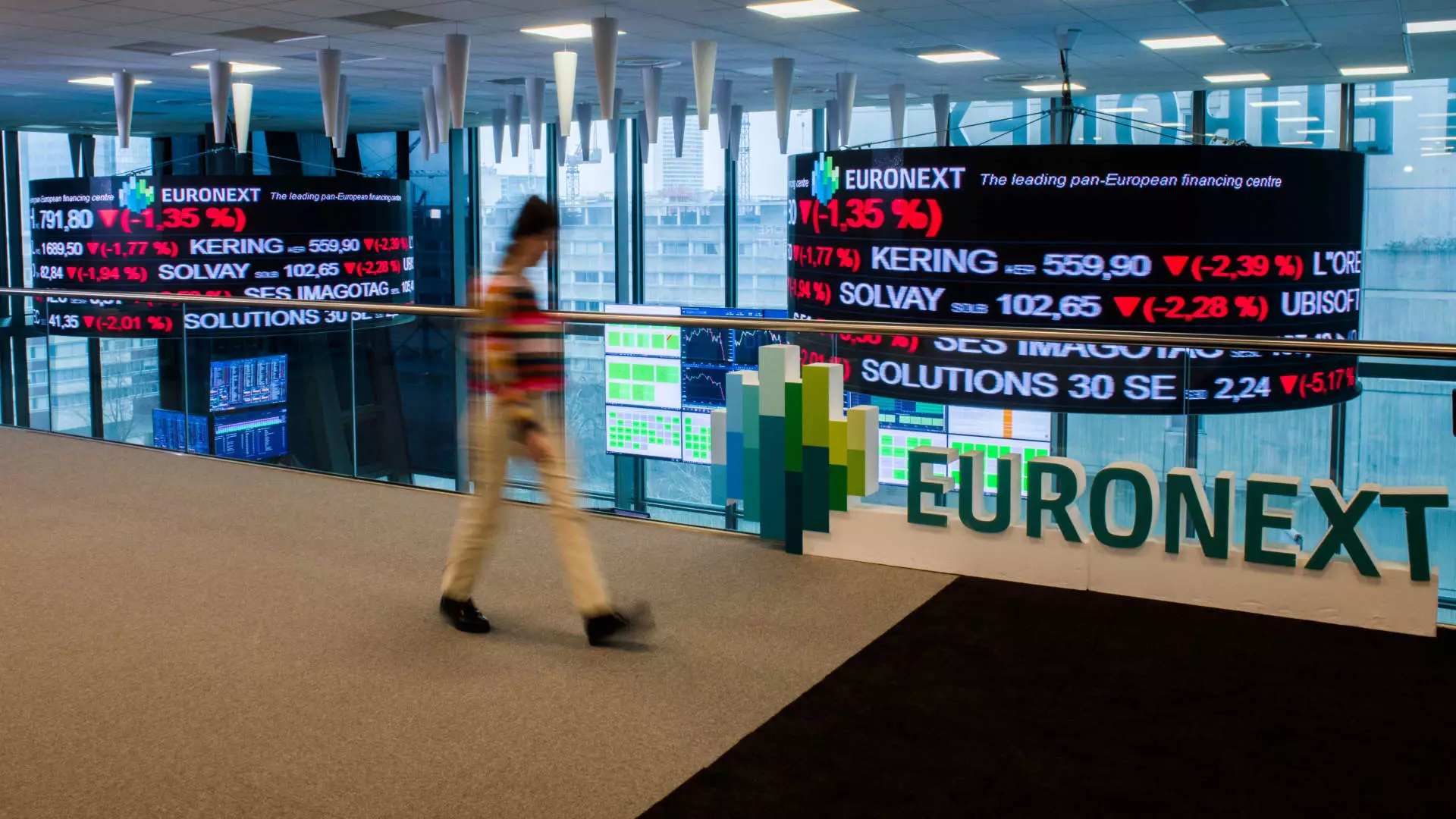The recent election of Donald Trump as President of the United States has triggered a series of complex reactions within global financial markets, highlighting an evident disconnect between U.S. indices and international equities. On Wednesday, U.S.-listed funds that track global stocks experienced a notable decline, as investors grappled with the implications of Trump’s victory on international trade dynamics. Despite major U.S. indexes reaching record highs, sectors concentrating on foreign markets faced significant pressure, indicating a cautious approach from global investors.
Central to the pullback in international funds is the uncertainty surrounding Trump’s proposed import tariffs. The potential introduction of a blanket tariff of 20% on all imported goods—along with a staggering 60% tax on goods from China—has raised red flags both in financial circles and among voters. Although this stance did not significantly sway the election results, its anticipated economic ramifications are causing investors to reassess their global strategies. As Yung-Yu Ma of BMO Wealth Management aptly noted, the exposure of international markets to such tariff policies introduces an unpredictable element that could stifle growth in those sectors.
The effects of Trump’s victory were vividly demonstrated across various international exchanges. While the Dow Jones Industrial Average witnessed its best performance in nearly two years, markets in Europe experienced a marked downturn. The iShares Core MSCI Europe ETF (IEUR) dropped more than 2%, indicating investor reluctance to engage amidst the election fallout. Asian markets exhibited a mixed response, with Japan’s Nikkei 225 displaying resilience, contrary to the broader trend, while the iShares MSCI China ETF (MCHI) registered losses exceeding 2%.
Interestingly, not all foreign investments succumbed to the wave of negative sentiment. The Global X MSCI Argentina ETF (ARGT) marked an upward trajectory, gaining over 2% to achieve a 52-week high, reflecting the positive investor sentiment towards Argentina’s newly-elected libertarian president, Javier Milei, whose policies echo some of Trump’s ideologies.
Currency Implications and Their Global Effects
Compounding the market fluctuations is the behavior of the U.S. dollar, which surged to its highest value since July according to the ICE U.S. Dollar Index. This upward momentum aligns with rising inflation expectations that have followed Trump’s election. LPL Financial’s Adam Turnquist alerted that a stronger dollar could further complicate the landscape for international investments—especially in emerging markets, which have historically lagged behind their U.S. counterparts. As evidenced by a more than 1% decline in the iShares MSCI Emerging Markets ETF (EEM), the prevailing currency dynamics are putting those markets in a precarious position.
The landscape following Trump’s election is complex, filled with potential pitfalls and opportunities. While U.S. stocks may present a favorable outlook, international markets are navigating through a maze of uncertainty fueled by policy changes and shifting economic sentiments. As traders and investors prepare for the upcoming changes, the long-term ramifications on global equities remain to be seen, demanding careful scrutiny and strategic adjustments.

